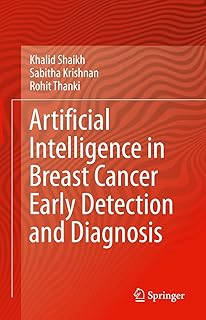Artificial intelligence (AI) integrated with ultrasound technology for breast cancer has seen significant research progress over the years. A systematic review aimed to summarize these advancements, identify research hotspots, trends, and international collaboration patterns for improved clinical applications. Utilizing bibliometric visualization analysis, the study examined literature from 2004 to 2025, culminating in 1,876 relevant articles.
The analysis revealed a steady increase in annual publications since 2024, with the United States leading in academic influence, boasting 485 articles and 15,394 total citations. Key researchers like Moon Woo Kyung and institutions like Seoul National University Hospital emerged as pivotal contributors to the field. Core research themes included “deep learning,” “breast ultrasound,” and “machine learning,” with a surge in interest in deep learning post-2020.
Noteworthy publications in radiology by Berg WA and Al-Dhabyani W have significantly impacted the field. The integration of AI with ultrasound presents promising prospects for enhancing breast cancer diagnosis accuracy. However, regional disparities in global research highlight the need for enhanced international collaboration.
Future efforts should focus on optimizing deep learning-based imaging analysis, leveraging big data for treatment optimization and prognosis prediction, and addressing technical challenges such as data quality assurance and algorithm sharing mechanisms. Despite the potential benefits, the study emphasizes the importance of bridging regional research gaps to ensure comprehensive advancements in breast ultrasound technology.
This study underscores the significance of AI integration in ultrasound technology for breast cancer diagnosis and treatment. By analyzing research trends, hotspots, and collaboration patterns, the systematic review offers valuable insights for further advancements in clinical practices and decision-making processes.
It is evident that ongoing research in this field holds great promise for improving diagnostic accuracy and treatment outcomes in breast cancer. By harnessing the power of AI and ultrasound technology, healthcare providers can enhance patient care and contribute to the continuous evolution of oncological imaging techniques.
📰 Related Articles
- Study Shows MRI and Mammography Outperform Ultrasound for Breast Cancer Detection
- AI Software Enhances Breast Cancer Screening Accuracy and Efficiency
- AI Integration Reshaping Cloud Computing Trends for Innovation
- Vietnam’s Impact on Global Student Mobility Trends Revealed
- Ultrasound’s Cognitive Benefits in Alzheimer’s Treatment Revealed by Research






